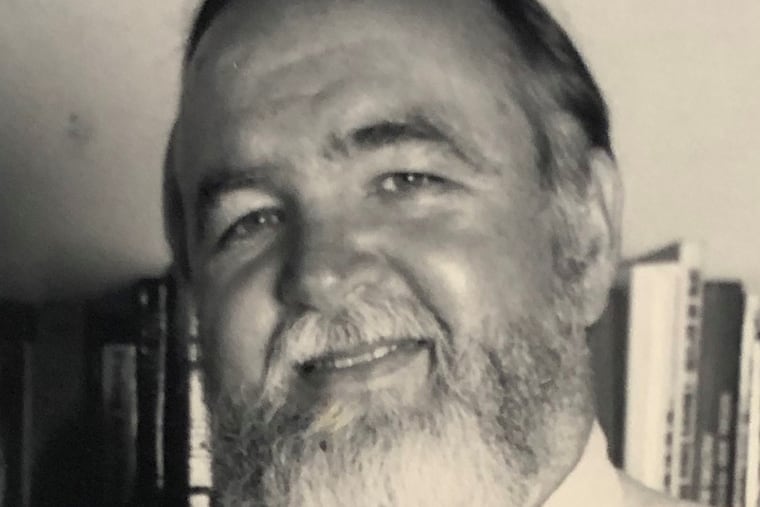Walter H. Moleski, former Drexel architecture professor, dies at 82
Walter H. Moleski, 82, of Philadelphia, who taught architecture at Drexel University for more than three decades, died at the Watermark retirement community in Philadelphia after years of enduring side effects from strokes.

Walter H. Moleski, 82, of Philadelphia, who taught architecture at Drexel University for more than three decades, died Nov. 30 at the Watermark retirement community in Philadelphia after years of enduring side effects from strokes.
Born in 1936 in Philadelphia to parents who had emigrated from Poland and Scotland, Mr. Moleski grew up in Torresdale. He enjoyed a “Norman Rockwellian” upbringing, said his son, Charlie Moleski of Philadelphia, recalling his father’s tales of sledding with his brother.
Yet his childhood also contained loss. When Mr. Moleski was entering his teenage years, his father died. His mother sent him and his brother to Episcopal Academy in Newtown Square, which proved a “pivotal moment in his life,” Charlie said, spurring a belief in the power of education.
Interested in architecture from the time he was a child — “even before he knew what the word ‘architecture’ was," his son said — Mr. Moleski moved to New Orleans to attend the Tulane School of Architecture. He graduated in 1960, serving in the Army before returning to Philadelphia four years later.
While working for architecture firms, Mr. Moleski taught at the Philadelphia College of Art, now the University of the Arts. It was there that he met Aileen Sharp Moleski, who was working at the college, according to their son.
The two married in 1965 and settled in the Bella Vista neighborhood of South Philadelphia, “before moving into that neighborhood was at all something desirable,” Charlie Moleski said. The Moleskis were among an “artistic, bohemian” group of families and were very social, hosting monthly open-house parties and a “big sauerkraut dinner” every New Year’s Day.
During that period, Mr. Moleski commuted to the City University of New York to study environmental psychology. He became focused on the links between architecture and psychology, including "why the big housing projects, which held so much potential for providing housing for so many people, had turned out to be a negative and caustic influence” on peoples’ lives, his son said.
Mr. Moleski founded a consulting practice, working with architecture firms Hartman Cox in Washington and Wallace Roberts and Todd in Philadelphia, among others. He lectured at colleges and universities around the country, from Temple University and the University of Pennsylvania to MIT and the University of Texas.
He began teaching at Drexel in 1977, where his son said he was dedicated to his students. “He had a lot of respect for them,” including the effort involved in completing night classes after work, Charlie Moleski said. Mr. Moleski, who taught at Drexel through 2008, served for a decade as the assistant head of the architecture department. Among professional awards, he received the Environmental Design Research Association’s Career Award in 2002.
Mr. Moleski was also known as “a huge teaser” and “an extraordinarily friendly guy,” his son said. Meeting his father for lunch as a child at his office at 18th and Sansom, Charlie Moleski remembered growing impatient with the number of times Mr. Moleski would stop to chat with colleagues.
“He was the best dad,” said Charlie, who is managing partner of a project management firm. “He was a really loving father. I always thought that might have come from the fact that he lost his own father.”
Mr. Moleski developed expressive aphasia after having his first stroke nine years ago, hindering his ability to speak, though it didn’t stop him from painting or reading, Charlie said. His father was "one of those crazy readers — people who read until 2:30 in the morning, then wake up and read some more.”
In addition to his son, Mr. Moleski is survived by his wife, a brother, and two grandsons.
A memorial service will be held at Christ Church at Second and Market Streets on Jan. 11 at 11 a.m. Donations can be made to Fleisher Art Memorial or Drexel University’s Department of Architecture, Design and Urbanism, where a travel club is being established in his memory.